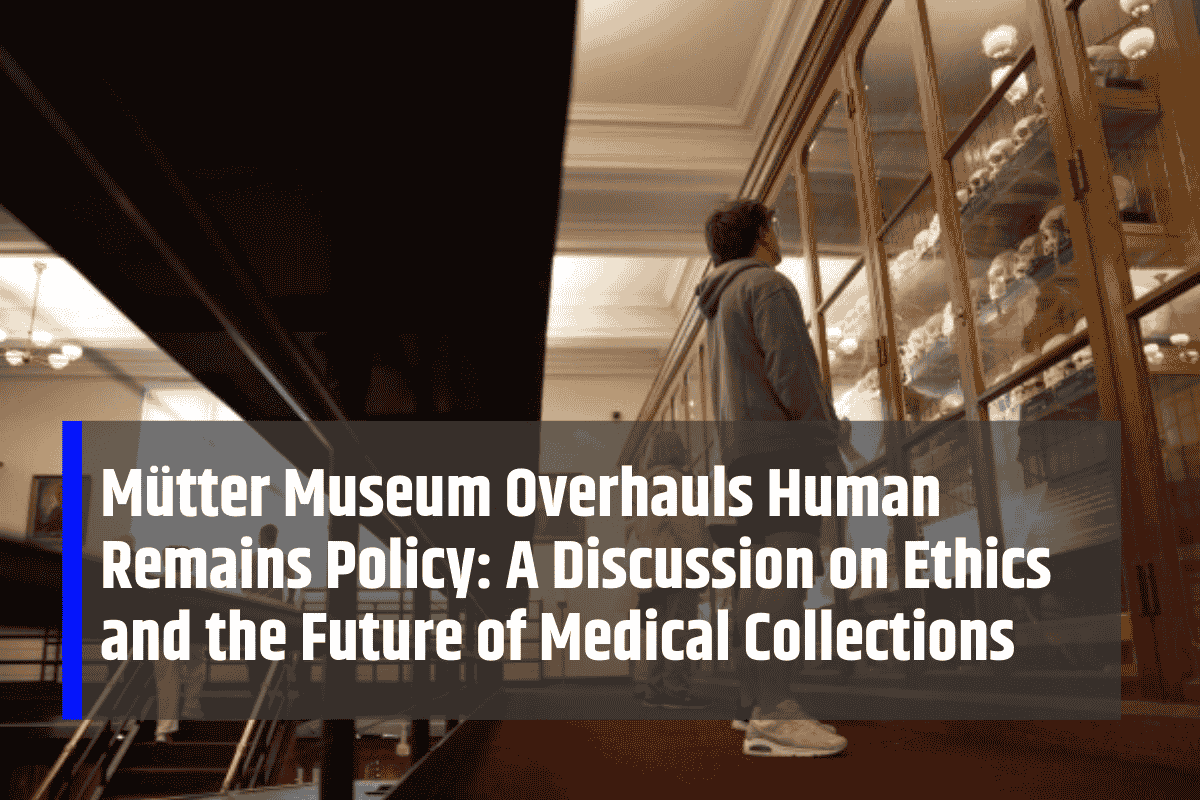The Mütter Museum in Philadelphia has long held a distinctive role at the intersection of medicine, education, and public curiosity. Home to thousands of anatomical specimens and medical instruments, it has become world-renowned. Now, its decision to overhaul policies on human remains marks a turning point for museums globally.
From 19th-Century Origins to Global Recognition
Founded in 1858 and named after Dr. Thomas Dent Mütter, the museum began as a teaching collection. Over time, it grew into a repository of medical oddities, from Einstein’s brain tissue to towering skeletons. More than 50,000 specimens have passed through its collection, inspiring awe and sparking debates about science and humanity.
A Legacy of Unquestioned Practices
For decades, human remains were displayed with little regard for consent or cultural implications. Such practices were common across institutions in Europe and North America. Yet, as modern ethics evolved, cities like Toronto and Melbourne re-examined how to engage respectfully with communities connected to these remains, setting new expectations for stewardship.
Philadelphia’s Ethical Challenge
Many Mütter specimens were acquired without explicit, informed consent. This raises difficult questions: Who owns these stories? How should dignity be preserved while still fulfilling educational missions? Across the world, institutions in San Francisco, Paris, and Tokyo are grappling with similar issues—repatriating remains, contextualizing displays, and prioritizing transparency.
The Museum’s New Policy Framework
The Mütter’s updated policy emphasizes four core principles:
- Consent First: All new acquisitions require informed consent from donors or descendants.
- Community Partnership: Local and historically marginalized groups will help guide representation.
- Restorative Review: Current displays will be evaluated for recontextualization or repatriation.
- Transparent Provenance: Clear records of origin and acquisition will be shared with visitors.
These commitments reframe the museum’s role as both educator and ethical steward.
Global Ripple Effects
Other institutions are taking notice. In Boston and Chicago, curators are reviewing their own collections. In London, the Natural History Museum faces renewed calls for reform. In Seoul and Mumbai, where colonial histories complicate provenance, leaders are considering new frameworks inspired by Philadelphia’s example.
Shifts in Medical Education
Beyond museums, medical schools are also adapting. In New York, virtual reality anatomy labs now supplement or replace cadaver studies. Seventy percent of U.S. medical schools use such tools, reflecting the growing view that medical knowledge should advance without compromising ethics. The Mütter’s changes resonate with these evolving educational practices.
Broader Impacts on Research and Engagement
Revising human remains policies carries multiple consequences:
- Education: Digital modeling and interactive exhibits provide inclusive, accessible alternatives.
- Research: Scholars must prioritize provenance and collaborate with descendant communities.
- Public Trust: Visitors in Melbourne, London, and Tokyo increasingly value ethically curated experiences, strengthening institutional credibility.
A Blueprint for Global Museums
If successful, Philadelphia’s reform could serve as a model. Museums in Berlin, Cape Town, and Mexico City are exploring community-centric approaches to human remains. The Mütter’s efforts align with wider cultural shifts: libraries digitizing archives, galleries repatriating artifacts, and institutions reframing how humanity’s stories are told.
Reimagining the Museum’s Role
The museum is no longer simply a keeper of objects—it is a narrator of human experience. With that responsibility comes the obligation to balance education with empathy. By embedding ethics into its practices, the Mütter demonstrates how museums can remain relevant while honoring dignity.
From Curiosity to Care
The Mütter Museum’s policy overhaul signals a profound cultural shift. By centering consent, transparency, and respect, it redefines how medical collections can inspire learning. From Philadelphia to London, Cape Town to Tokyo, this moment invites a global reimagining: museums as places where science and empathy walk hand in hand.





Leave a Comment